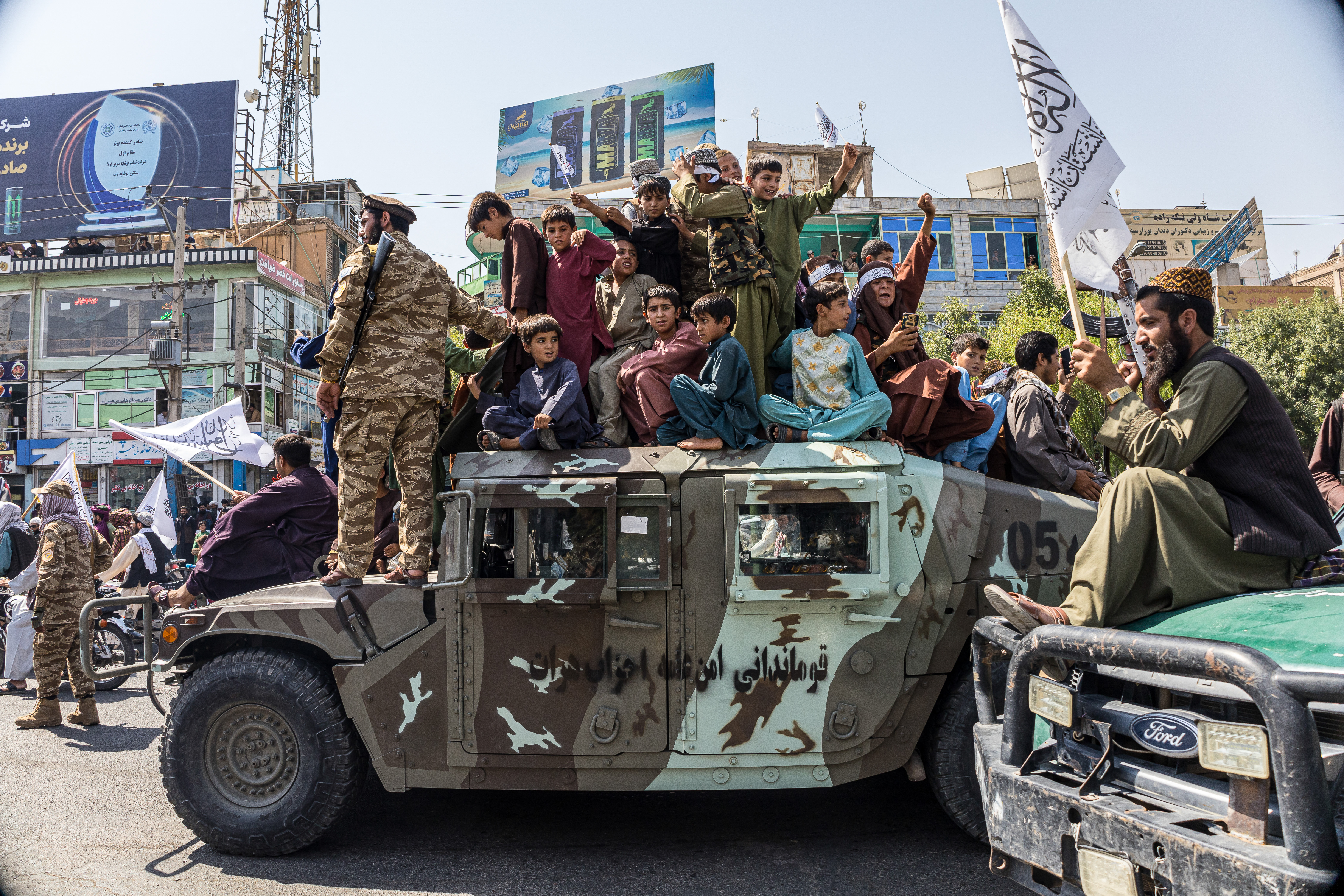The webinar moderated by Senior Fellow, Dr. Marvin Weinbaum took place on May 14, from 11:00 am to 12:30 pm, on the topic, “US Policy Toward the Taliban’s Afghanistan Under the Trump Administration.” The discussion covered current US policy toward the political normalization of the relationship with the Taliban government, prospects for cooperation in counterterrorism, the resettlement of at-risk Afghans, and the delivery of humanitarian assistance. Panelists explored the strategic importance of continued American engagement with both Afghanistan and the broader region, especially in light of the Pakistan-India conflict, as well as the potential for other unforeseen developments to deepen US involvement.
Speakers
Mr. Javid Ahmed
Associate Fellow, Middle East Institute; Senior Fellow, South Asia Center, Atlantic Council
Ms. Lisa Curtis
Senior Fellow and Director, Indo-Pacific Security Program, Center for a New American Security
Mr. Douglas London
Adjunct Associate Professor, Georgetown University’s Center for Security Studies
Dr. Joshua T. White
Professor of Practice, Johns Hopkins School of Advanced International Studies
Dr. Marvin G. Weinbaum (Moderator)
Senior Fellow, Middle East Institute
Extended Speaker Biographies
Mr. Javid Ahmad is an Associate Fellow at the Middle East Institute. He is also a senior fellow with the Atlantic Council’s South Asia Center, focusing on security and counterterrorism, transregional militancy, and illicit networks. From 2020-2021, he served as Afghanistan’s ambassador to the United Arab Emirates. He serves as a member of the board of advisors for GardaWorld Federal Services, a federal contractor that provides security and risk management services to U.S. government agencies. Previously, he was a nonresident fellow with the Modern War Institute at the U.S. Military Academy at West Point, where he provided tailored assessments on violent extremism, insider threats, political risk and counterterrorism financing issues in South Asia and the Middle East. He has worked with the U.S. defense community, including General Dynamics, where he provided security and macroeconomic analysis and assessments to U.S. government and business clients.
Ms. Lisa Curtis is a senior fellow and director of the Indo-Pacific Security Program at the Center for a New American Security (CNAS). She is a foreign policy and national security expert with over 20 years of service in the U.S. government, including at the National Security Council (NSC), CIA, State Department, and Capitol Hill. Her work has centered on U.S. policy toward the Indo-Pacific and South Asia, with a particular focus on U.S.-India strategic relations; Quad (United States, Australia, India, and Japan) cooperation; counterterrorism strategy in South and Central Asia; and China’s role in the region. Curtis served as deputy assistant to the president and NSC senior director for South and Central Asia from 2017 to 2021. During her tenure at the NSC, she coordinated U.S. policy development and implementation of the South Asia Strategy approved by the president in 2017 and was a key contributor to the Indo-Pacific Strategic Framework, which included expanding Quad security cooperation.
Mr. Douglas London retired from the CIA in 2019 after 34 years as a Senior Operations Officer, Chief of Station and CIA’s Counterterrorism Chief for South and Southwest Asia. He served primarily in the Middle East, South Asia, the former Soviet Republics and Africa, with senior management positions for the Near East, Counterterrorism, Counterintelligence, Iran and Cyber operations. Mr. London is a Non-resident fellow at the Middle East Institute, and is author of the book “The Recruiter: Spying and the Lost Art of American Intelligence,” concerning the CIA’s post 9/11 transformation. Mr. London has been a contributor to the New York Times, the Wall Street Journal, Politico, Foreign Policy, Foreign Affairs, The Hill, CNN, Just Security, The Atlantic Council and the Middle East Institute.
Dr. Joshua T. White is Professor of the Practice of International Affairs at Johns Hopkins SAIS, and serves as the inaugural director of the U.S.-ASEAN and U.S.-Pacific Institutes for Rising Leaders. He is also a Nonresident Fellow in the Foreign Policy program at The Brookings Institution. He previously served at the White House as Senior Advisor & Director for South Asian Affairs at the National Security Council, where he staffed President Obama and the National Security Advisor on the full range of South Asia policy issues pertaining to India, Pakistan, Afghanistan, and the Indian subcontinent, and led efforts to integrate U.S. government policy planning across South and East Asia. Prior to joining the White House, Dr. White was a Senior Associate and Co-Director of the South Asia program at The Stimson Center and, previously, Senior Advisor for Asian and Pacific Security Affairs in the Office of the Secretary of Defense, a position he held in conjunction with an International Affairs Fellowship from the Council on Foreign Relations.
Dr. Marvin G. Weinbaum is professor emeritus of political science at the University of Illinois at Urbana-Champaign, and served as analyst for Pakistan and Afghanistan in the U.S. Department of State’s Bureau of Intelligence and Research from 1999 to 2003. He is currently a Senior Fellow at The Middle East Institute. At Illinois, Dr. Weinbaum served for fifteen years as the director of the Program in South Asian and Middle Eastern Studies. His research, teaching, and consultancies have focused on the issues of national security, state building, democratization, and political economy in Afghanistan and Pakistan. He is the author or editor of six books and has written more than 100 journal articles and book chapters. Dr. Weinbaum was awarded Fulbright Research Fellowships for Egypt in 1981–82 and Afghanistan in 1989–90, and was a senior fellow at the United States Institute of Peace in 1996–97. He has been the recipient of research awards from the Social Science Research Council, the Ford Foundation, the American Political Science Association, and other granting agencies.












